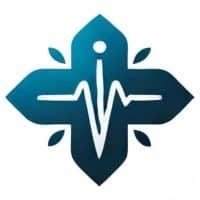Program Format and Instructional Model
The Medical Assisting Certificate Program at American Academy of Healthcare in Charlotte, North Carolina is a short-term, targeted training option that prepares students for entry-level roles in clinical and administrative medical settings. The program includes a total of 300 hours of instruction, broken into in-class theory and practical hands-on training, along with supervised clinical experience at offsite facilities. Students can choose between day or evening class schedules, allowing for flexibility to accommodate personal or work-related commitments.
Day classes are held Monday and Wednesday from 8:00 AM to 11:00 AM, while evening students attend Monday, Wednesday, and Friday from 6:00 PM to 10:00 PM. Clinical schedules vary based on the host site and may occur on weekdays during standard daytime hours. This structure makes the program accessible to both full-time workers and students looking to transition quickly into a healthcare career.
[esyoh_listings]
Core Curriculum and Clinical Experience
The program emphasizes practical, real-world training in both front-office and back-office functions. Students are introduced to a variety of clinical responsibilities such as performing EKGs, assisting with X-ray procedures, providing first aid, drawing blood (phlebotomy), taking vital signs, and preparing patients for physical examinations. Administrative training includes medical billing and coding, keyboarding, scheduling, transcription, insurance claims management, and maintaining electronic health records.
Students also learn professional standards in ethics, communication, and proper documentation. Clinical rotations are conducted at local healthcare facilities, offering valuable exposure to live medical environments. These experiences are supervised and serve as a transition between classroom theory and on-the-job readiness.
Admissions Requirements and Expectations
To enroll, applicants must have a high school diploma, GED, or college transcript. Additionally, they must already be a Certified Nursing Assistant I (CNA I), making this program ideal for CNAs who want to expand their healthcare credentials. Before beginning clinical rotations, students must submit a full immunization record, current TB test results, a flu vaccine (seasonal), hepatitis B declination form, a recent physical exam, a 12-panel drug screen, background check, and complete the clinical site’s orientation packet. Failure to meet these requirements by the deadline can result in removal from the clinical portion of the program.
Hybrid Learning Option and Flexibility
American Academy of Healthcare mentions a hybrid format for the Medical Assisting program, suggesting that some coursework may be completed online. While the specific details of the online component are limited, students should expect a blend of online learning with in-person lab work and clinical training. This approach supports independent learning while preserving the critical hands-on elements of healthcare education.
Affordability and Additional Costs
Tuition costs for the program are not explicitly stated, but the program stands out as an accessible and affordable option, especially for CNA I graduates looking to expand their qualifications. Uniforms and clinical attire are priced reasonably: scrub sets cost $25 each and disposable lab coats are available for $20 for a pair. Students are also expected to purchase course-appropriate gray scrubs and white jackets for clinicals and adhere to a professional dress code during all educational activities.
Instructors and Educational Philosophy
Founded in 2006, the American Academy of Healthcare has focused on developing career-ready healthcare workers, with a strong foundation in Certified Nursing Assistant education. While specific instructors are not listed, the program emphasizes a culture of professionalism, supportive teaching, and skill-building that aligns with current healthcare workforce needs. The Academy’s mission is to help students reach high standards of clinical and ethical practice while encouraging progression through the healthcare career ladder.
What to Expect After Graduation
Graduates of the program are equipped with the skills needed to work in a variety of healthcare environments including physician’s offices, urgent care centers, outpatient clinics, chiropractic offices, and specialty practices. The program is designed to prepare students to assist with minor procedures, sterilize instruments, manage patient intake, and carry out routine laboratory work. With cross-training in both clinical and administrative functions, graduates are positioned to meet the growing demand for versatile medical assistants in today’s healthcare settings.
While formal job placement assistance is not mentioned, the Academy’s connections with clinical sites and local employers during externships may support graduates in securing job leads after completion.
This program is a good fit for
This program is best suited for current CNA I-certified individuals looking to grow their credentials, particularly those who want a focused, hands-on education in a short time frame. It’s a good match for students who value flexible class scheduling and real-world clinical experience. Those with strong attention to detail, communication skills, and a passion for helping others will thrive in this structured and supportive environment.
| Program Information | Details |
| Cost | No |
| Program Duration | 300 hours |
| Class Schedules | Day (Mon/Wed 8AM–11AM) and Evening (Mon/Wed/Fri 6PM–10PM) |
| Prerequisites | High School Diploma or GED; CNA I certification |
| Address | 4917 Albemarle Road, Suite 207, Charlotte, North Carolina 28205 |
| Phone | (704) 525-3500 |
| [email protected] | |
| Website | https://www.americanacademyofhealthcare.org/nursing-school-medical-assisting |
| Job Placement | No |
Explore More Programs!
Browse our full directory of medical assistant programs in Charlotte.
